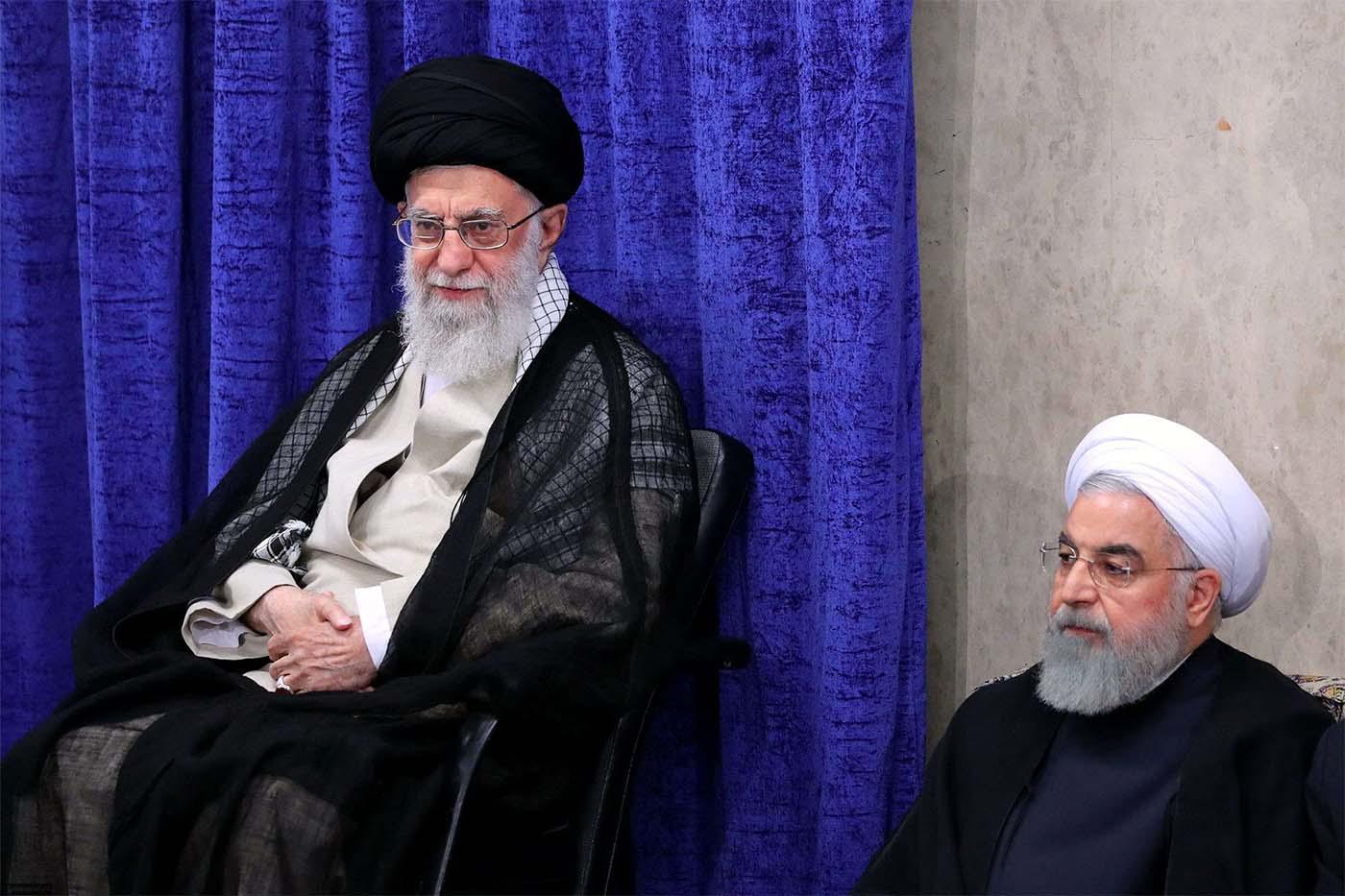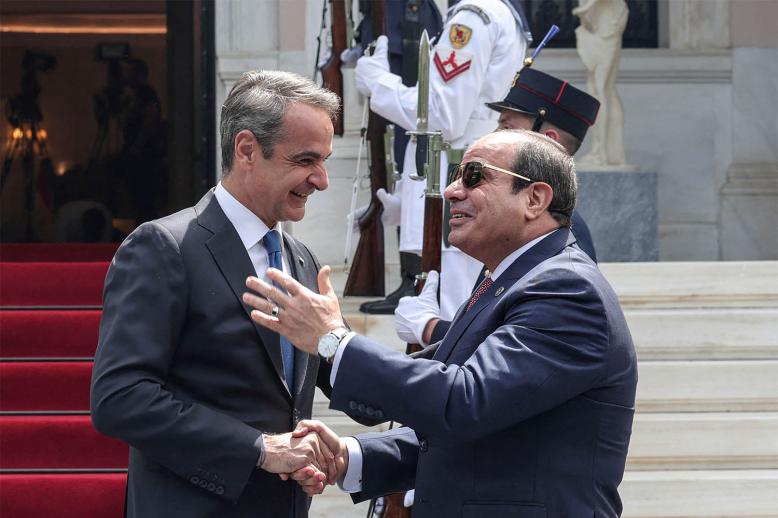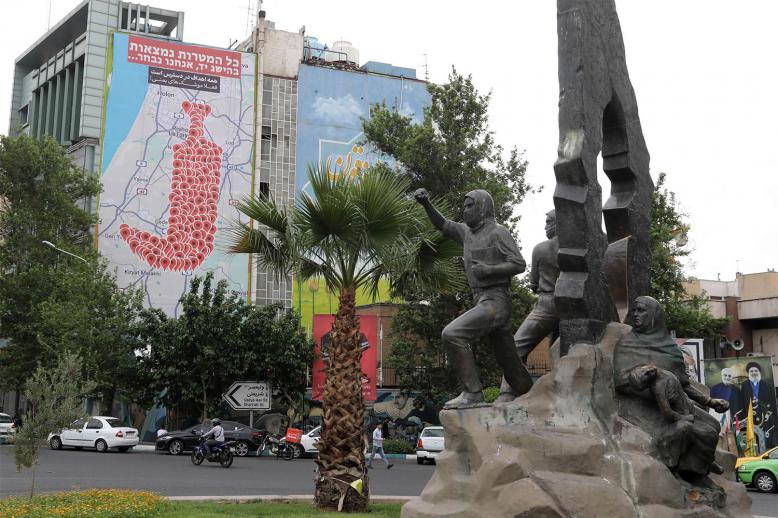Iran engages in high-risk game of brinkmanship that could lead to war
ISTANBUL — With its economy withering under US sanctions and its support in Europe dwindling after threats to leave the international nuclear deal, Iran is playing a high-risk game of brinkmanship in the Gulf.
The leadership in Tehran vacillates between tough talk of defeating the United States and claims that no player in the region wants a war.
A senior Iranian official told Reuters that Tehran was ready for all scenarios from “confrontation to diplomacy.” However, attacks such as the ones on four oil tankers near Fujairah and drone attacks by Iran-backed Houthi rebels in Saudi Arabia could provoke a war, even if the intention could have been to deter adversaries from a full-scale confrontation.
Suspicion has centred on Iran or its regional proxies. US officials, speaking to the Associated Press on condition of anonymity, said investigators sent to the United Arab Emirates reported large holes in ships anchored offshore were caused by explosive charges that they believed were planted by Iranian military divers.
US security agencies said proxies sympathetic to or working for Iran may have been behind the attacks. Reuters quoted two US government sources as saying possible perpetrators include the Houthis in Yemen and Iran-backed Shia militias in Iraq but Washington said it had no hard evidence.
Ali Fathollah-Nejad, a visiting fellow at the Brookings Doha Centre, said the oil tanker attacks could have been the work of groups linked to Iran’s Islamic Revolutionary Guard Corps that wanted to escalate the situation for their own gains.
“They could be provocations by elements close to [the] Revolutionary Guards to get a war going with the aim of cementing their own power in Iran and secure access to financial means for years,” Fathollah-Nejad said via e-mail.
Saudi Deputy Defence Minister Prince Khalid bin Salman posted on Twitter that the drone attack on two Saudi Aramco pumping stations along the East-West pipeline was “ordered by the regime in Tehran and carried out by the Houthis.” A state-aligned Saudi newspaper, Arab News, published an editorial calling for “surgical” US strikes on Iran in retaliation.
Ali Shihabi, CEO of the Arabia Foundation in Washington, said if the Iranians can get away with targeting Saudi oil infrastructure then “the whole security infrastructure in the Gulf will be called into question and security premiums on oil will rise.”
He said Riyadh was likely to coordinate reactions with Washington but “eventually what may happen is that just Saudi Arabia and the UAE may have to do something.”
Quoting informed Gulf sources, Saudi newspaper Asharq al-Awsat reported May 18 that “a number of Gulf states, including Saudi Arabia, have approved Washington’s request to redeploy US forces in Arabian Gulf waters and territories to thwart possible Iranian attacks in the region.”
“Such measures would protect the energy supply and prevent Iran from disrupting maritime traffic in that region,” they added.
Washington continued to prepare for a military conflict in the region even if some of its allies expressed doubts about Washington’s assertion that there is an immediate threat of Iranian attacks in the Middle East. Media reports said infighting within the administration is muddling US reactions towards Iran.
The Trump administration ordered all non-emergency staff to leave its embassy in Baghdad and consulate in Erbil in response to what the US military called imminent threats to US troops in Iraq. Germany suspended a military training programme in the country.
US President Donald Trump warned Iran that a military confrontation would be devastating for the country. “It’s going to be a bad problem for Iran if something happens,” Trump said. “They’re not going to be happy.”
US Secretary of State Mike Pompeo insisted that despite boosting US military capability in the Gulf region with B-52 bombers and warships, Washington was not on a collision course with Tehran.
“We fundamentally do not seek a war with Iran,” Pompeo said. “We’re looking for Iran to behave like a normal country.”
Some experts said the May 12 attacks on two Saudi, one UAE and one Norwegian tankers near the Strait of Hormuz in the Arabian Gulf could have been designed by Iran to test the resolve of the United States and its Sunni Muslim allies while maintaining deniability about its involvement.
Alex Vatanka, a senior fellow at the Middle East Institute in Washington, said Iran appeared to be trying to signal to its adversaries that the cost of a major confrontation would be high.
“In an environment of rising regional tensions, limited Iranian operations against the UAE and Saudi Arabia” might be designed to “signal that war with Iran will not be limited to Iranian soil,” Vatanka said.
He added that there was no clear evidence of the Iranian involvement in the drone attacks in Saudi Arabia. “But they seem to be excited about it if one looks at official Iranian media’s reaction and that alone will be viewed in Riyadh as an Iranian admission of culpability,” Vatanka said.
Only days before the attacks on the oil tankers, Iran announced that it would resume uranium enrichment beyond the limits of the 2015 nuclear deal if European countries are unable to work out a plan within 60 days to keep their trade with Iran alive despite crippling US sanctions.
The announcement was met with criticism in Europe at a time when EU support is vital for Iran.
Fathollah-Nejad pointed out Iran’s threat to violate the boundaries of the nuclear deal by boosting uranium enrichment was an effort to build up bargaining power that could be used later in direct or indirect negotiations with the United States.
That strategy was a political “high-wire act,” Fathollah-Nejad wrote.
Thomas Seibert is an Arab Weekly contributor in Istanbul.
Copyright ©2019 The Arab Weekly






